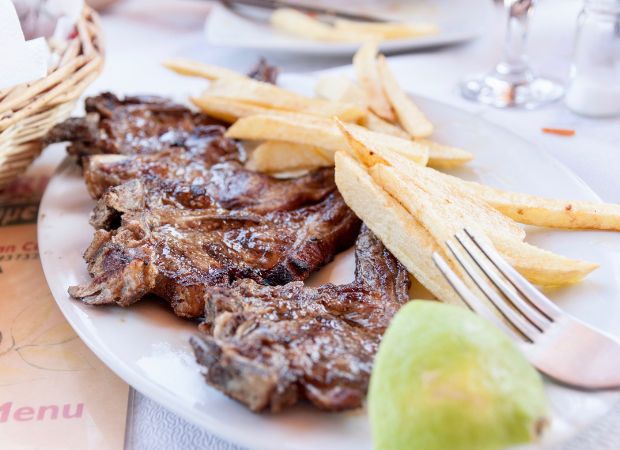As the desirability of dry-aged meat continues to rise for meat connoisseurs, so does the curiosity around dry-aged lamb. A seemingly untapped market, dry-aged lamb is something that isn’t readily available, especially in the South African market, so we don’t see much of it in butcheries, retail stores or even restaurants. Yet why are meat lovers so eager to get their hands on dry-aged lamb?
What is dry ageing?
Dry ageing is the process in which larger cuts of meat are aged by being hung uncovered in a climate-controlled environment anywhere from a few weeks to several months before being trimmed down into specific or smaller cuts and then sold commercially.
READ: 3 reasons a healthy meal plan should include lamb
Dry ageing removes excess moisture from the meat and allows the inherently rich flavour from the bones to penetrate through to the fleshy part of the meat and the fat, ensuring flavourful and tender meat.
With a similar profile to beef, lamb can also benefit from being dry aged, as both meats have a desirable reddish-pink flesh and a healthy layer of fat. This makes them perfect candidates for the dry-aged flavour-enhancing process.
MUST-TRY RECIPE: Wholesome lamb and barley soup
Why you should dry age meat
The benefits of dry ageing meat is that it significantly enhances its flavour, tenderness and juiciness. Dry-aged meat is typically more expensive, not only because the dry-ageing process lengthens the time until the producer can reimburse expenses, but also because the process shrinks the actual weight of the meat. Although dry-aged lamb is more costly, the product is rich in flavour and guaranteed to deliver on those complex and lingering lamb-rich flavour notes we all love so much.
MUST-TRY RECIPE: Spicy lamb and couscous tagine
Dry ageing can also positively impact more familiar types of sheep meat, like mutton, which is often underused today. Typically seen as a somewhat inferior red meat option to lamb, mutton can be easily transformed into a gourmet and highly sought-after offering through the dry-ageing process.
Dry ageing offers a unique opportunity to bolster the mutton demand as well as promote and enrich the lamb industry both commercially and for consumers, thereby uplifting and invigorating the meat market by offering consumers high-quality dry-aged lamb products that are packed with protein and a guaranteed richer flavour profile!
READ: The Food24 team shares a few lamb tips and their top recipes

